In the realm of dental health, endodontics and periodontics play crucial roles. This article delves into the intricacies of these specialized fields, elucidating their fundamental principles and importance in maintaining oral health.
Furthermore, it offers a comparative analysis to highlight the key differences between endodontics and periodontics. The aim is to provide an insightful resource for understanding these complex areas of dentistry and their significant impact on overall dental care.
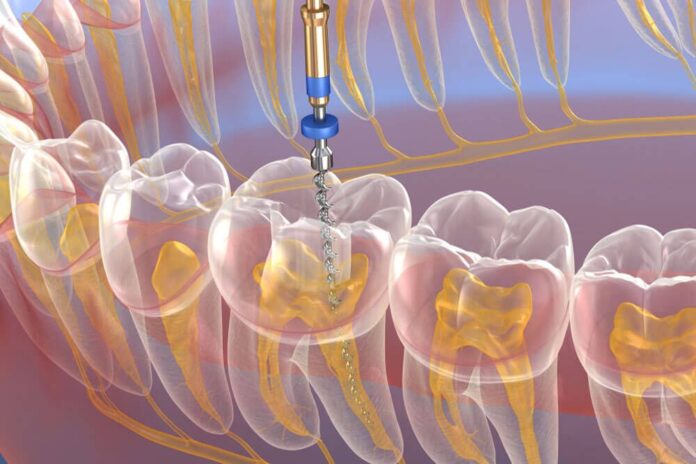
Understanding Endodontics: The Basics
Endodontics, a critical branch of dentistry, focuses primarily on the study and treatment of the dental pulp. This specialized field plays a crucial role in maintaining oral health by addressing issues within the complex inner structures of teeth.
Endodontic treatments essentially aim to preserve natural teeth, significantly reducing the need for extractions or artificial replacements. The most common treatment is the root canal, an essential procedure in endodontics.
Root canal basics involve removing the infected or inflamed pulp tissue, meticulously cleaning the root canal system, and subsequently filling and sealing the space. This process eliminates dental pain and restores dental function.
Thorough understanding of these procedures reinforces the importance of endodontics in maintaining oral health.
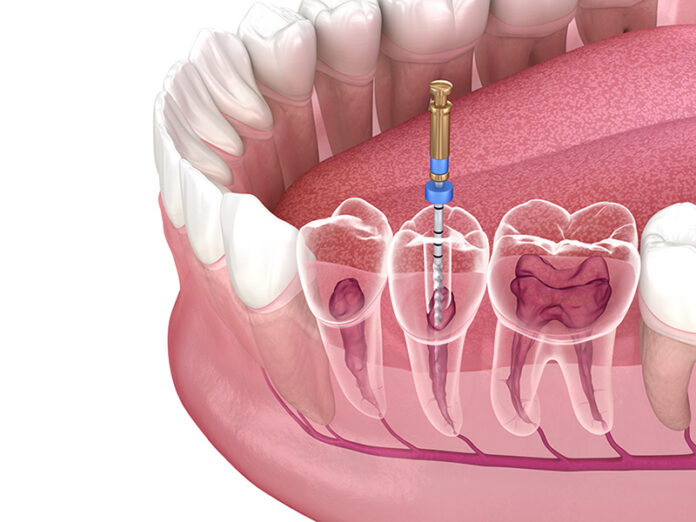
Role of Endodontics in Oral Health
The integral role of endodontics in oral health preservation cannot be overstated, as it directly involves the safeguarding of tooth integrity through specialized treatments. Endodontic therapies, such as root canal procedure, are quintessential in the treatment of inner tooth infections, thus mitigating the risk of tooth loss and maintaining oral functionality.
However, root canal misconceptions often deter individuals from seeking necessary treatment, leading to detrimental oral health consequences. Contrary to common belief, modern root canal therapy is typically painless and highly effective. It is imperative to dispel these misconceptions and educate patients on the importance of endodontics in maintaining their oral health.
Through this, the field of endodontics continues to play a crucial role in the landscape of comprehensive oral health care.
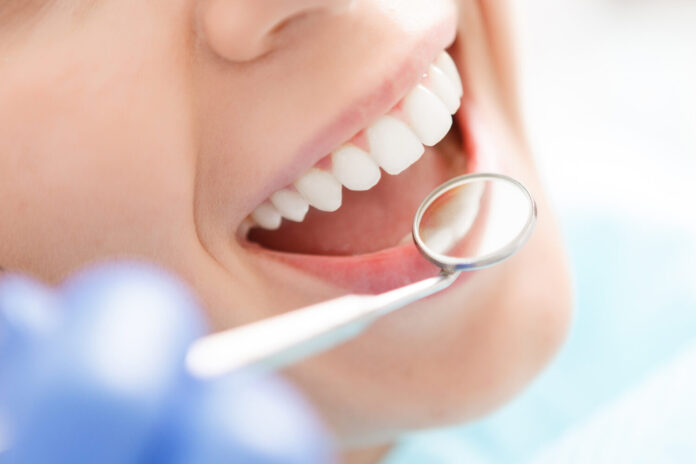
Unraveling Periodontics: A Closer Look
Shifting focus to periodontics, another essential pillar of oral health care, this specialty is primarily concerned with the prevention, diagnosis, and treatment of diseases affecting the gums and supporting structures of the teeth.
Periodontal disease prevention is paramount, involving regular check-ups, cleanings, and patient education on proper oral hygiene. However, when preventative measures fail to stop the progression of gum diseases, periodontists employ various treatment methods.
Notably, gum grafting techniques have evolved considerably, providing efficient ways to treat gum recession and bone loss. These techniques involve the transfer of healthy gum tissue to the affected area, aiding in the restoration of gum health. Precise and thoughtful implementation of these techniques is crucial for successful outcomes.
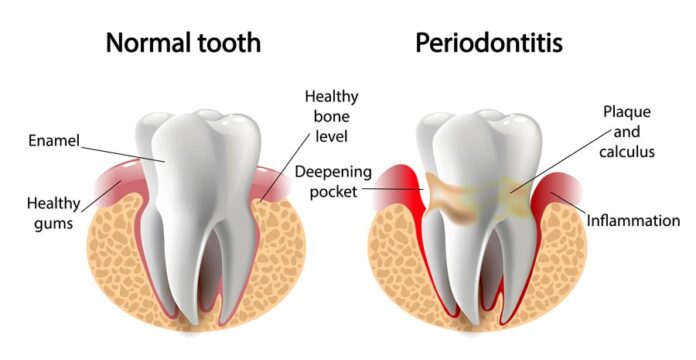
Significance of Periodontics in Dental Care
In light of comprehensive dental care, the significance of periodontics cannot be overstated, playing a pivotal role in maintaining oral health and preventing severe dental conditions. As a specialized branch, it focuses on the structures surrounding and supporting the teeth, primarily aiding in gum disease prevention. It becomes crucial in detecting early signs of periodontal diseases, thus enabling timely interventions.
Periodontal treatments range from non-surgical methods like scaling and root planing to surgical procedures like gingival grafts, depending on the severity of the condition. Moreover, periodontics also plays a paramount role in the management of complex dental cases, ensuring the longevity of dental implants and prosthetics.
Therefore, the importance of periodontics in dental care is multifaceted, extending beyond mere gum health maintenance.
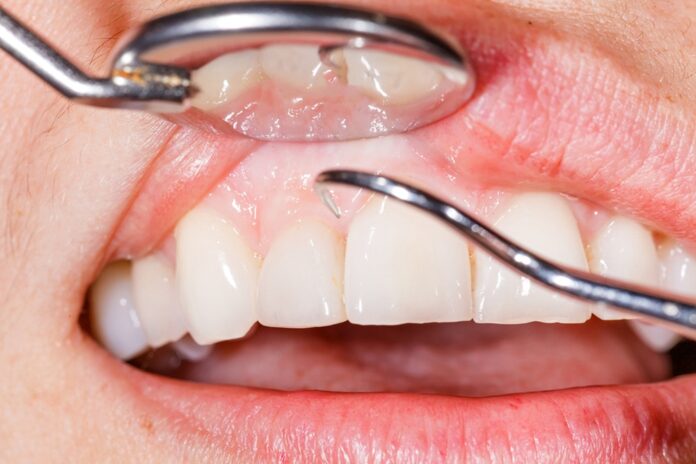
Comparing Endodontics and Periodontics: Key Differences
How do endodontics and periodontics, both integral to dental health, differ from each other in their areas of focus and methodologies?
Endodontics primarily deals with diseases of the dental pulp and nerves, employing treatments like root canal therapy.
Periodontics, on the other hand, addresses concerns of the gum and bone supporting the teeth, with treatment options including scaling and root planing.
In terms of specialty selection, endodontics requires proficiency in intricate procedures, while periodontics necessitates understanding the systemic implications of gum diseases.
Treatment comparisons highlight that endodontic procedures are typically singular, focused interventions, while periodontic treatments may be ongoing to manage chronic conditions.
Despite these differences, both specialties share the common goal of preserving oral health.
Frequently Asked Questions
What Are the Potential Risks or Complications Associated With Endodontic and Periodontic Treatments?
Understanding treatment options in endodontics and periodontics is crucial due to potential risks including infection, tooth loss, and complications from anesthesia. The role of oral hygiene is critical in minimizing these adverse outcomes.
How Can I Prevent the Need for Endodontic or Periodontic Procedures?
Preventing the need for endodontic or periodontic procedures can be achieved through regular dental check-ups covered by dental insurance, and effective home remedies like proper brushing, flossing, and maintaining a balanced diet.
What Is the Recovery Process Like After Undergoing an Endodontic or Periodontic Procedure?
The recovery process after endodontic or periodontic procedures typically involves pain management strategies and post-treatment diet adjustments. It’s crucial to adhere to prescribed medication and dietary guidelines to facilitate optimal healing and prevent complications.
How Often Should One Have a Periodontic or Endodontic Check-Up?
The frequency of periodontic and endodontic check-ups varies depending on individual dental health. Typically, biannual visits are recommended, but this may increase if issues arise. Treatment costs and dental insurance coverage can affect these decisions.
Are There Any Lifestyle Changes I Can Make to Improve My Oral Health and Potentially Avoid Endodontic or Periodontic Treatments?
Improving oral health and potentially avoiding endodontic or periodontic treatments is achievable through optimized dental hygiene routines and balanced nutrition. Regular flossing, brushing, and consuming a diet low in sugars can significantly impact dental health.

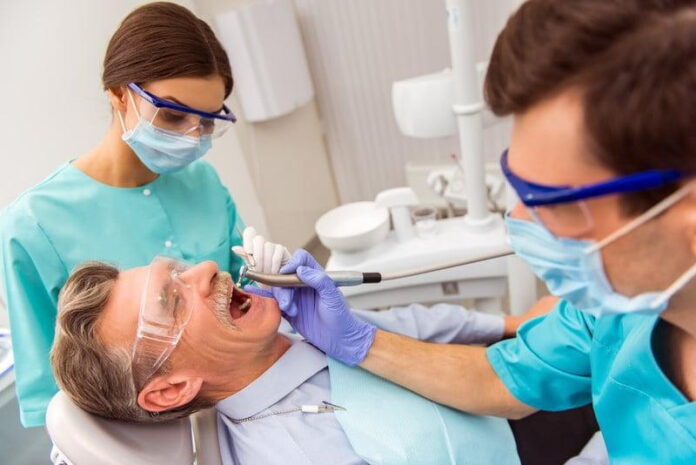
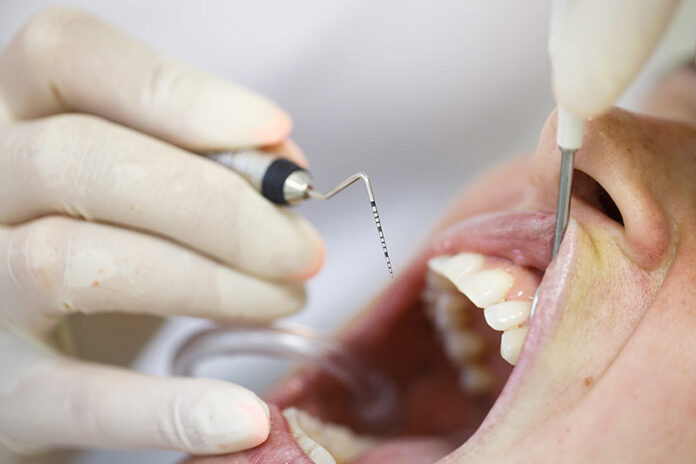



![Calgary’s Hottest Neighborhoods for Luxury Homebuyers [2024]](https://thewashingtonote.com/wp-content/uploads/2024/04/Calgary-324x160.png)



